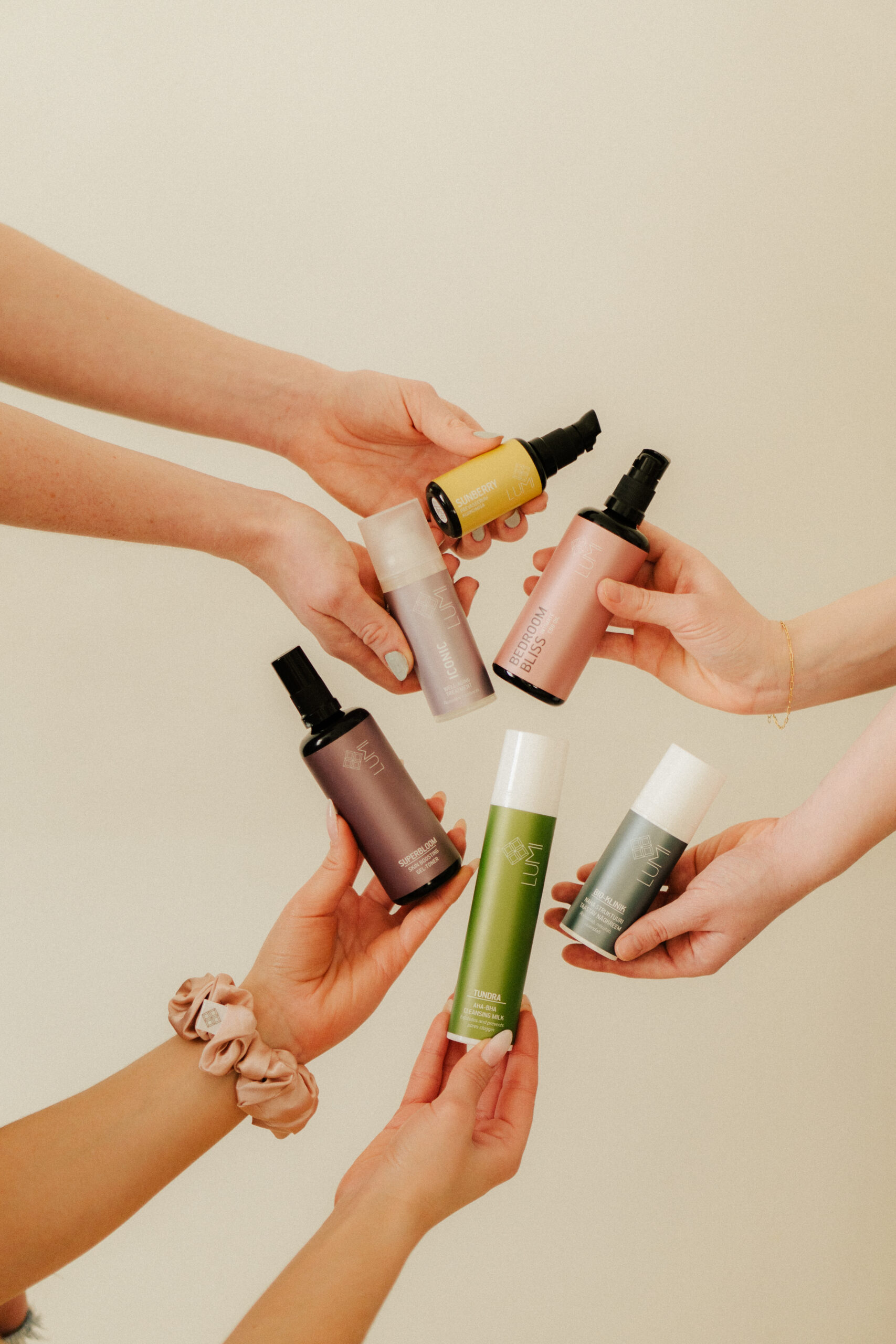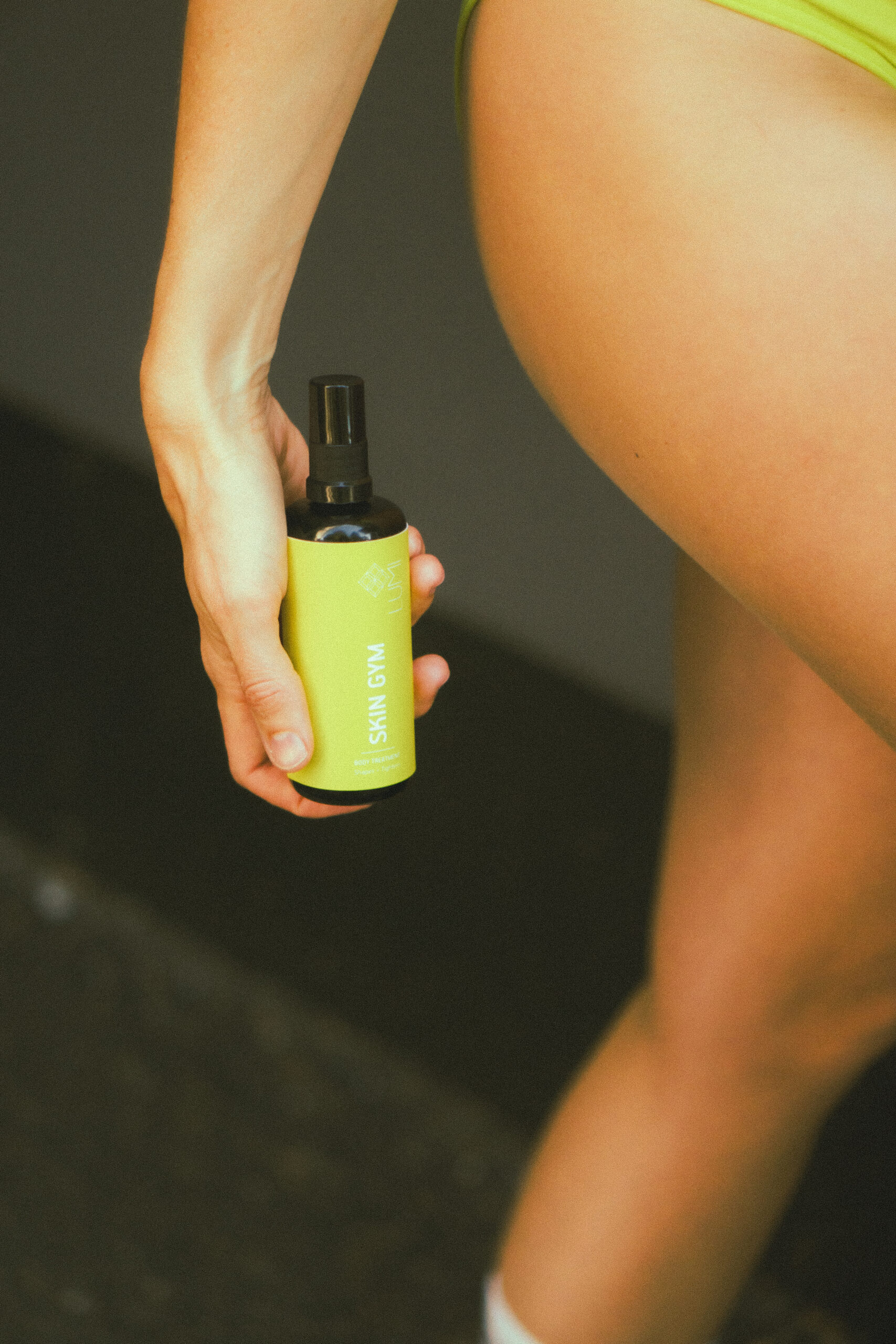How Menopause Affects the Skin – And How LUMI Can Help!
Menopause is something that half of the entire world will experience at some point in their lives. It’s very likely that every person reading this article knows someone who is going through menopause right now, in fact! The changes caused by menopause can often be dramatic, and can affect bodily functions as varied as our sleep, our hearts, our weight, our bladder, and our mental health.
It shouldn’t come as any surprise then that the menopause also affects the skin. Oftentimes, the effects of the menopause on skin are rolled into those of aging, with ‘anti-aging’ products touted as cures for everything. As anyone who has relied solely on these products already knows – this could not be further from the truth!
The reality is that menopause is a unique time for your body, with its own specific challenges to overcome, and problems that need to be addressed. It can be tough! But don’t fear, dear reader, for help is at hand. LUMI are here to assist, with a swathe of totally organic, science-backed solutions for any skin problem you may have.
So, without further ado, let’s take a look at some common menopause-related skin issues, as well as some fresh and fantastic LUMI products that will have your skin back to its best in no time!
Reduced Collagen and Elastin
One of the starkest changes you may notice during menopause is a decline in collagen and elastin within the skin. Women’s skin loses roughly 30% of collagen during the first five years of menopause, and a further 2% each year for the next two decades. This is because of a reduction in the amount of oestrogen present in the body.
The result of this collagen and elastin scarcity is that skin will begin to sag, losing its shape and firmness. Pores become larger, and wrinkles and facial lines that may have only appeared whilst making certain expressions might now be permanent features of the face. Skin barrier strength and wound healing properties of skin are also reduced, making you more physically vulnerable.
To remedy this situation, it’s important to assist skin in its production of collagen and elastin. Adding peptides to the skin, such as those found in our ICONIC Overnight Peptide Treatment, stimulates collagen production. Similarly, bakuchiol, found in several of our products, has been shown to have a retinol-like effect on skin, increasing collagen and elastin production. We recommend trying our ICONIC Well-Aging Treatment especially!
Skin Sensitivity and Newfound Allergies
The drop in oestrogen caused by menopause can in turn affect many properties of the skin, including its thickness and amount of sensitivity. It is common for those going through perimenopause, menopause, and post-menopause to notice that skin is thinner and more sensitive than it once was.
In addition, because your hormone levels and immune system are linked, the sudden loss of estrogen that occurs during menopause can often bring with it newfound allergies to things you previously tolerated well.
LUMI’s Bio-Klinik Series is Estonia’s first totally organic hypoallergenic skincare range. Each product has been specially designed to be used on any and all skin, no matter how sensitive, so they are the perfect fit for menopausal bodies going through a lot of change!
Melasma (Hyperpigmentation)
A combination of changing hormone levels and UV exposure can lead to hyperpigmentation of the face, hands, neck, and chest. This is sometimes called facial and extra-facial melasma. The condition is more likely to affect those with darker natural skin, and whilst benign, can affect our confidence and happiness with our appearance.
Interestingly, it is not thought that menopause itself causes the onset of melasma, but rather that one of the hormones used in hormone replacement therapy (HRT), progesterone, is the primary reason for its appearance. For similar reasons, melasma can also affect pregnant women and women using some oral contraceptives.
LUMI have plenty of solutions to help you tackle hyperpigmentation. For topical use, we recommend one of our LUMI all-stars, the award-winning NAKED Hyaluronic Acid Multiserum. The multiserum’s unique composition helps with aforementioned melasma, as well as menopausal acne, rosacea, and much more.
For extra help, the LUMITEEK Restore! Vitamin B3 (Niacin) food supplement tablets are the perfect source of a vital nutrient for your body that not only helps with hyperpigmentation, but also supports skin elasticity, reduces redness and blemishes, and has anti-oxidative and anti-inflammatory effects!
Sweating, Dry Skin, and Itching
Menopause can cause your body to sweat much more profusely than usual. This is not just contained to the infamous ‘hot flashes’, either – studies have shown that women sweat more frequently and more intensely in general during menopause. Skin can also become very dry during the menopause. These two factors can both lead to prolonged periods of itchy skin that can make you feel very uncomfortable.
The solution to itchy skin will depend based on the root cause, but it’s always a great idea to cleanse skin effectively and moisturise skin thoroughly afterward. For cleansing, LUMI boasts an array of effective cleansing milks, including the fantastic Moisturising Cleansing Milk, which does a brilliant job of removing dirt, sweat, and other buildup from skin without being harsh enough to degrade skin cells and damage the skin’s microbiome.
For moisturising, we recommend our Bio-Klinik Restorative Moisturiser, a powerful cream that manages to be hypoallergenic and suitable for sensitive skin, whilst still boasting a wealth of moisturising, anti-aging, and microbiome-restoring properties. It’s perfect for menopausal skin that may be feeling more sensitive than usual!
Menopausal Acne
Menopausal acne is surprisingly common amongst women going through menopause and can cause unwelcome discomfort at a point where life is already challenging! Much like with teenage acne, the main cause of menopausal acne is rapidly changing hormones and the imbalances that occur as a consequence.
Our international award-winning LUMI Tundra range has been specially formulated for acne-prone skin. The three-part Tundra skincare routine bundle contains everything you might need to banish menopausal acne – an effective but gentle cleansing milk and moisturiser both containing AHA-BHA acids, and a yarrow facial mist with salicylic acid. It’s the perfect combination!
Ready to help your skin stay at its most healthy and radiant throughout menopause and beyond? You can find our entire range of all-natural, award-winning skincare solutions right here!
Want to have a chat with one of our LUMI experts and figure out a skincare regime that’s tailormade for your skin? Contact us here – we love nothing more than helping people love their skin again!
References
-
American Academy of Dermatology Association (2023). Caring for Your Skin in Menopause. https://www.aad.org/public/everyday-care/skin-care-secrets/anti-aging/skin-care-during-menopause
-
Calleja-Agius, J., & Brincat, M. (2012). The effect of menopause on the skin and other connective tissues. Gynecological endocrinology: the official journal of the International Society of Gynecological Endocrinology, 28(4), 273–277. https://doi.org/10.3109/09513590.2011.613970
-
Crandall, C. J., Mehta, J. M., & Manson, J. E. (2023). Management of Menopausal Symptoms: A Review. JAMA, 329(5), 405–420. https://doi.org/10.1001/jama.2022.24140
-
Khunger, N., & Mehrotra, K. (2019). Menopausal Acne – Challenges And Solutions. International journal of women’s health, 11, 555–567. https://doi.org/10.2147/IJWH.S174292
-
Lephart, E. D., & Naftolin, F. (2021). Menopause and the Skin: Old Favorites and New Innovations in Cosmeceuticals for Estrogen-Deficient Skin. Dermatology and therapy, 11(1), 53–69. https://doi.org/10.1007/s13555-020-00468-7
-
Mpofana, N., Chibi, B., Gqaleni, N., Hussein, A., Finlayson, A. J., Kgarosi, K., & Dlova, N. C. (2023). Melasma in people with darker skin types: a scoping review protocol on prevalence, treatment options for melasma and impact on quality of life. Systematic reviews, 12(1), 139. https://doi.org/10.1186/s13643-023-02300-7
-
Murota, H., Yamaga, K., Ono, E., Murayama, N., Yokozeki, H., & Katayama, I. (2019). Why does sweat lead to the development of itch in atopic dermatitis?. Experimental dermatology, 28(12), 1416–1421. https://doi.org/10.1111/exd.13981
-
Ritter, C. G., Fiss, D. V., Borges da Costa, J. A., de Carvalho, R. R., Bauermann, G., & Cestari, T. F. (2013). Extra-facial melasma: clinical, histopathological, and immunohistochemical case-control study. Journal of the European Academy of Dermatology and Venereology: JEADV, 27(9), 1088–1094. https://doi.org/10.1111/j.1468-3083.2012.04655.x
-
Thornton M. J. (2013). Estrogens and aging skin. Dermato-endocrinology, 5(2), 264–270. https://doi.org/10.4161/derm.23872
-
University of Oxford Medical Sciences Division (2023). Symptoms of Menopause. https://www.medsci.ox.ac.uk/for-staff/resources/human-resources/menopause-at-work/symptoms-of-menopause
-
Zouboulis, C. C., Blume-Peytavi, U., Kosmadaki, M., Roó, E., Vexiau-Robert, D., Kerob, D., & Goldstein, S. R. (2022). Skin, hair and beyond: the impact of menopause. Climacteric: the journal of the International Menopause Society, 25(5), 434–442. https://doi.org/10.1080/13697137.2022.2050206

